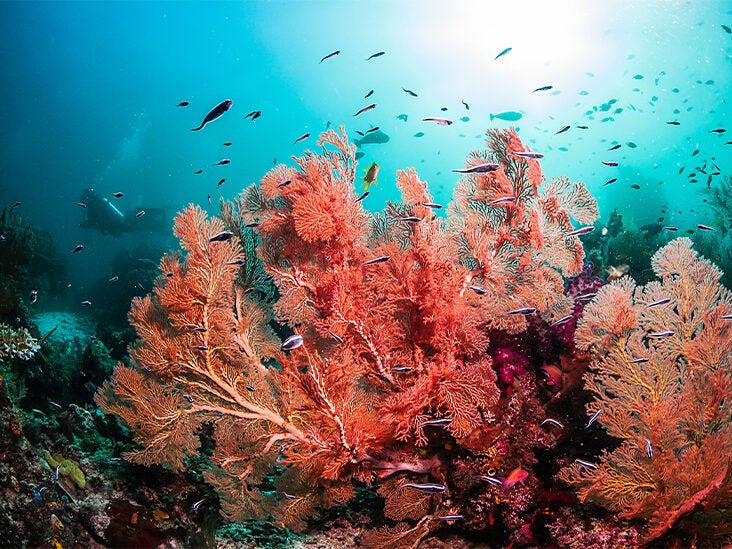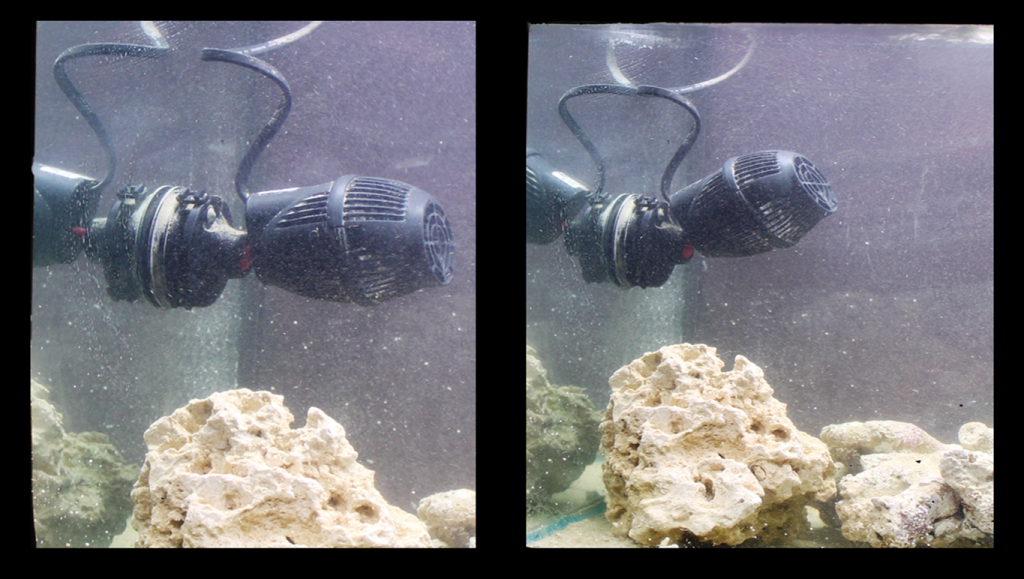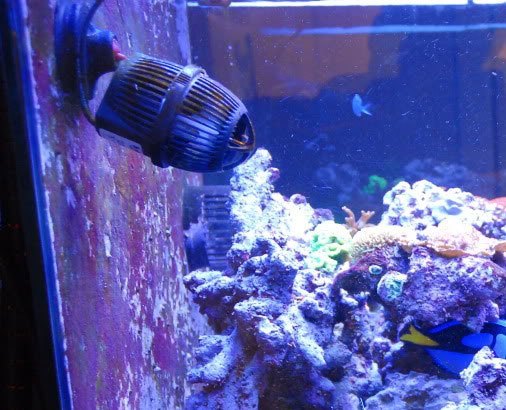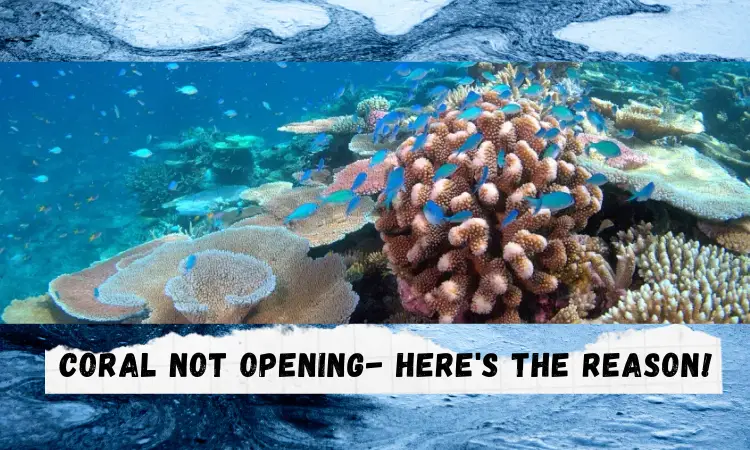Coral being a long-term growing vertebrate, adds frustration when it’s not even opening up. These beautiful marine vertebrates come to their true beauty when they start opening their tentacles.
We know how it makes you feel. But there’s hope. These shy corals can be opened up.
So, what to do when you find your coral not opening up?
When coral is not opening, correct the alkalinity, salinity, hardness, and pH levels of water. Also, try having a more efficient filtration system, optimize co2 levels, and set the right temperature.
Well, this was an overview of what can be done. We’ll discuss in detail the right water parameters along with maintenance tips. So that it doesn’t happen again.
So what are you waiting for? Let’s dive right into the article and open those corals up!
Mythbusting: Is Coral Not Opening Always Bad?

Source: https://www.healthline.com/
Corals are kept as a wonderful decor for your aquarium. In addition to that, they come at their true beauty when they open/extend themselves. Corals open themselves by extending their tentacles. These tentacles grow into the beautiful coral structures that we see today.
The coral opening is a natural phenomenon. And this is supposed to happen.
If your coral is not opening, then there’s definitely some issue with your water parameters.
However, there are corals that close themselves up at night. Plus there are also some which take longer than usual to adjust to a new environment. Goniopora corals are the best example in this case.
There’s also a coral named Blue Ridge that takes several weeks to open up. In general, corals can take about 1-2 weeks for them to start opening up. There are also some types of corals that can take months before they open up.
But these are exceptional cases. If you see your coral not open, there are issues with water and environment parameters. This is being them not late openers.
What is Causing Your Coral to Not Open?
Coral not opening is definitely an issue. There are a bunch of reasons why corals might stop from opening.
Mostly it’s caused by water parameters, environmental issues, pollutants and debris, predators, and many more. We will now talk about these in detail below.
First Thing First: Let’s Test the Water
There are ideal parameters for corals that ensure healthy growth and timely opening. If these parameters are not met, it can cause an issue with your coral. They will not have proper growth and can even die!
So it’s important that all these parameters are met correctly before growing corals. But before that, you need to test your water so that you can make changes accordingly.
There are many testing kits that can measure multiple ingredients. Here’s our recommendation for ideal water testing kits.
Now that you know your current state of the water, let’s introduce you to what you should’ve had. Let’s have a quick look at these ideal parameters-
| Parameter | Ideal Level |
| Specific Gravity | 1.023-1.028 |
| Temperature | 73-84 F |
| pH | 7.7-8.4 |
| Alkalinity | 142-215 ppm |
| Ammonia | <0.1 ppm |
| Nitrite, Nitrate | 0-30 ppm |
| Phosphate | 0.02-0.05 ppm |
| Calcium | 350-450 ppm |
| Magnesium | 1250-1350 ppm |
| Iodine | 1 ml for every 400 L once a week |
| Strontium | 5-15 ppm |
| GH | 6.5-9 dkh |
| KH | 8-12 dkh |
These are the basic requirements of water for corals to open up and have a steady growth.
Are Your Water Parameters Good?

Source: https://www.reefaquarium.com/
Now that you know the ideal parameters for corals to open. It’s time to have a look at them in a more detailed way. These parameters need to be within the ideal range. If they are either more or less, it can be dangerous for your coral’s health. So let’s get in there!
Alkalinity
Alkalinity is a major factor in ensuring the well-being of your corals. If your water doesn’t have the acceptable range of alkalinity, it might cause them to retract or not open.
If alkalinity is higher than recommended, it can cause filtration issues in the tank. This will make the corals go on their protective mode without opening up. So make sure to check alkalinity once in a while.
And if the alkalinity is lower than the recommended, it can fluctuate the pH levels. The water will become excessively acidic or basic upon the addition of acid/base.
Alkalinity helps in maintaining this pH of water. It also supplies required carbonates and bicarbonates. This ensures the good health of the corals.
Salinity
Another crucial factor for coral is the salinity level. Most fishes and plants are not sensitive to salinity like corals. If corals don’t meet the minimum salinity level of water, they can actually die. This also explains their tendency to keep themselves closed.
Corals need a minimum of 31 ppt(parts per thousand) of salinity level. Otherwise, they move towards death. This also explains their not opening. So make sure to check the salinity levels of your water.
Hardness
Hardness refers to how much alkaline minerals are dissolved in the water. Corals need a definite hardness of the water. Otherwise, they don’t grow.
There are two types of hardness. One is the gH and the other one is the kH. kH refers to carbonate hardness and gH refers to general hardness.
General hardness(GH) implies the number of calcium and magnesium ions dissolved. This means the hardness of the water. There are particular fishes and plants that prefer hard water.
When the GH is high, it means that there are a lot of Calcium ions and no Magnesium ions are present. It can cause growth issues to the corals.
Carbonate hardness(KH) refers to the carbonate and bicarbonates dissolved in water. It indicates the stability of the aqua environment for living beings.
If the KH is higher, it means that it’s hard to change the PH of the water. So if you have PH in the unacceptable range, having a high KH can be a problem.
The optimal GH rating for corals is 6.5-9 dkh.
Nitrite and Nitrate
Nitrate levels can cause the coral to become protective and not open. The nitrogen waste in the form of ammonia is made into nitrite by certain bacterias. Other bacterias then make nitrate out of nitrites. A higher nitrate level is harmful to corals.
Try to keep 0 ppm nitrate for ensuring the well-being of your corals. But there are some amazing corals that can tolerate up to 30 ppm of nitrates. These are basically soft corals. If you are a new coral enthusiast, you can choose easy-to-grow soft corals that can tolerate higher nitrate levels.
How Can You Fix The Water Parameter?
You can fix the water parameters that hinder coral from opening. You can set the water hardness level, pH level, and ammonia level. This will help the coral from not opening. Let’s see them in detail-
Balance The pH Level
You can set the pH level in water that will help them to open. The ideal pH level for corals is 7.7-8.4. You need to test the pH level of water first in order to set the right pH.
If you don’t see your pH in the given range, you need to set it right.
In order to increase or decrease pH, you can first set your water neutral(pH=7) and then make changes to it. You can find pH stabilizer liquid or tablets for that.
After that, you can simply add baking soda to increase the pH amount. Add 1 teaspoon of baking soda for 5 gallons of water. This is a safe method. But take fish out of the tank if there’s any, to add soda.
If the pH crosses the acceptable range, you can add Muriatic acid to lower the pH. Add 1 ml Muriatic acid for 250 L of water until the pH matches the acceptable range.
Here’s our recommendation for pH stabilizer and muriatic acid-containing stabilizer-
There are also natural ways to raise or lower your tank’s pH level. To know more about it you can watch the following video-
Balance The Hardness
For balancing the hardness of water, you need to measure its gH and kH respectively. You can use kits for measuring the hardness of the water. Here’s our recommendation-
| Image | Product | Price |
|---|---|---|
 | Varify Water Hardness Test Kit | Order Now! |
 | Watersafe Water Test Kit | Order Now! |
If your GH is lower than 6.5 you need to increase it up to 10. You can lower gH through a mixture of 3 things-
- 1 teaspoon Baking Soda
- 1 teaspoon Epsom Salt
- 1 teaspoon Rock Salt
- 5 gallons of Dechlorinated Water
You can make separate mixtures according to your tank size in gallons. This will reduce the gH level. Otherwise, you can directly buy Seachem Equilibrium to balance with and promote stability of the carbonate hardness.
Here’s a tip, you can de-chlorinate your water using vitamin C.
If the gH level is already more than 10, you can lower it by adding reverse osmosis water to the tank. This is the easiest way to reduce hardness.
If you have a lower kH level, you can add Aquanatural Oolitic aragonite or Seachem alkaline buffer to the water to increase kH.
For lowering kH you can use peat moss in mesh bags. And put it in the water filter. This will lower the kH.
What About Your Water Quality?

Source: https://www.ratemyfishtank.com/
Now that we’ve known the certain parameters required for coral opening. It’s time we talked about water quality. This is different from the water parameters that we mentioned before.
Water quality indicates the filtration level of the water. Whereas, water parameters are the requirements of minerals in the water.
When the water quality deteriorates, corals are seen to close themselves up. This can be prevented. Let’s see the causes of bad water quality and what you can do to solve it-
Bad Filtration
Filtration removes the harmful substances that are present in the water. These substances, if present, can trigger the immunity of corals. This can make them protective of themselves. As a result, it can lead to them not opening and staying inside their protective bubble.
There are 3 main components of filtration required in order for leading a healthy life of corals. These are biological, mechanical, and chemical segments of the filtration process. Missing any of these can cause your corals to go in their “protective mode” and not open.
You can install any filtration system but make sure that these 3 components are not missed. The mechanical part should contain filter sponges or pads that’ll filter the debris. The biological part is the most important one.
That’s because it’ll ensure that fish by-products are not turned into harmful ammonia. It will convert the ammonia into less harmful nitrites and nitrates. Live sand and live rocks work as excellent biological filters here.
The last part is chemical filtration. These include activated carbons and GFO. They will eradicate the toxic pollutants in the water that are red flags for the corals.
Ensuring the right filtration method can make the corals feel safe to open. A Fluval canister filter can be used in this case which has the 3 mentioned aspects of filtration. However, when using a canister filter, make sure to prime it correctly.
Water Temperature
The required water temperature for corals to open up is between 73 F and 84 F . Temperature below or above it can cause the corals to act differently. If your tank does not maintain this range, it can be alarming for the corals. They are equally harmed for both low and high temperatures.
So always try to maintain this temperature. In this case, you can use a temperature controller.
Here are some good-quality controller suggestions from us-
| Image | Product | Price |
|---|---|---|
 | Inkbird Temperature Controller | Grab it Now! |
 | Pymeter Digital Temperature Controller | Grab it Now! |
However, if your water has a temperature too low or higher than the given, you need to change it immediately. Because this can be the cause of them not opening.
What about Your Water Flow System?

Source: https://gmacreef.com/
The water flow system plays an important role for corals not opening. Lower water flow can cause detritus to accumulate on the corals. This can keep them from opening up. Let’s see-
Optimize CO2 Supply
CO2 levels in a coral aquarium can be the culprit behind its not opening problem. That’s because it’s related to the pH of water. Higher co2 levels cause a greater amount of H2CO3 in the water. This in turn increases the pH level of water.
It’s not advised to use co2 testing kits. These can give misleading information. What you can do is measure the pH of water through a pH testing kit.
If the pH level is lower than 7 then you need to use co2 scrubbers to reduce the co2 level in your water. Plus if you should run co2 constantly in the tank, it can reduce the nutrient level in the water.
This, in turn, can trigger the corals to stay closed. Check nutrient levels and if it’s off-chart despite adding them, you can try reducing the co2 level using a co2 regulator. This may solve your problem.
Get a Proper Filter
Getting a proper filter is essential for the good health of corals. Lack of filtration can cause them to stay closed due to having pollutants in the water. We’ve already mentioned the ideal filtration aspects above. So do try to follow those.
Add a Powerhead
Powerheads are the small magical things that keep debris from setting at the bottom. Not having a powerhead can cause them to settle around the corals. These will give them an impulse to not open. We mentioned this problem in the bad filtration segment too.
So getting a powerhead can actually help to keep this debris from the corals. They get filtered out due to powerheads. And it can actually help the corals to open up.
Here’s our recommendation for suitable powerheads in your saltwater aquarium-
| Image | Product | Cost |
|---|---|---|
 | AQUANEAT Aquarium Powerhead Pump | Buy on Amazon |
 | AQQA Submersible Powerhead Pump | Buy on Amazon |
Does Coral Type Play Any Role for Not Opening?
There are certain corals that are vulnerable to certain things. These can keep them from opening up. It makes it easier to identify the problem for which coral is not opening. That’s because these problems cause them to close most of the time.
Duncan Coral Not Opening
Duncan Coral not opening can be caused due to its adaptability to a new environment. If you have recently changed the water parameters to the right range, it can take time for them to open. Sometimes they are also seen to close from time to time after opening.
But this does not stay like this for more than a day or two. It doesn’t take more than a week for them to open. So don’t get impatient if they are not opening. If they take more than that, there is a problem with the water condition or tank mates.
Frogspawn Coral Not Opening
Frogspawn Coral not opening can be caused due to nipping of tank mates. They seem to close themselves up if the small fishes and other organisms start nipping them. It can suddenly close itself up after even a week of opening. What you can do is install a cage around it so that fish don’t nib at it. This can solve their closing problem.
Goniopora Coral Not Opening
Goniopora not opening can be caused due to lack of enough food. These corals need a higher amount of food for them to open. It can take a month for them to open if you don’t give them enough food.
You can give oyster eggs or cyclops or Polyp Lab Nano Reef-Roids Coral Food to ensure their opening. If these food particles float around them, they will take them in and start to open slowly.
Zoanthids Not Opening
Zoanthids not opening is caused by shrimps or invertebrates crawling over them. IIf you have shrimps in your tank, it’s the reason why they are not opening. Another thing could be fish poking at them. This causes them to close after opening.
These pokings and crawling cause them to close often. If you have a bubbler in your aquarium, make sure it doesn’t stay suspended disturbing your corals. You should keep these bubblers in one place rather than swinging around.
What Else Could Restrict Your Corals From Opening?

Source: https://reefbuilders.com/
We have talked about a bunch of reasons that may be causing corals not opening. But there’s more! These are some less talked about reasons that keep those corals closed.
Is the Growth Style Healthy?
Corals have an opening problem due to water parameters and environmental issues. But what about its growth?
Isn’t it possible that it’s not opening due to growth issues? Yes, obviously it is possible. Let’s see how a coral faces growth issues in the first place.
Growth Deficit and Feeding
The growth deficit can be caused due to a lack of nutrients. The photosynthetic corals will get 85% of the nutrients from their symbiotic algae. You have to provide the rest. And for the non-photosynthetic corals, you have to provide 100% nutrients yourself.
They need carbohydrates, amino acids, fatty acids, and vitamins.
The growth deficit can cause the corals to not open up and have any growth. Non-photosynthetic corals don’t have any symbiotic algae with them. So, they need to be fed every day.
If your coral is not opening up but all other parameters are good, it’s probably facing growth issues. You need to start feeding them if you are not already. And if you are feeding them but still facing this issue, maybe you are not using the right foods for them.
You can feed them cyclops, shrimp Mysis, and everything that you feed your fish with. They will need all of that.
You can start feeding them once every day. This is a must for the nonphotosynthetic ones. If the photosynthetic ones are having feeding problems, you can feed them once every two days.
Here’s our recommendation for a balanced feeding of corals-
| Image | Title | Buy |
|---|---|---|
 | San Francisco Bay Brand Freeze Dried Mysis Shrimp | Order Today! |
 | Ocean Nutrition Reef Pulse | Order Today! |
With this package, it would be enough for them to avoid a growth deficit.
Lighting
Corals need a good amount of lighting to survive and open up. The symbiotic algae attached to corals provide enough nutrition to them. And those algae need light too for photosynthesis. If you have all other parameters in a good condition, then lighting can be the issue here.
There are also some corals that open up at night only. Sinularia Finger Leather corals are the perfect example here. They stay closed during the day but only open at night.
For corals, you need a definite PAR of lighting. PAR is the intensity of light that is in the required/correct spectrum for coral. Soft and LPS corals will need a PAR level of 50-150. And stony or hard corals require 200-500 PAR levels for them to adapt and open up.
You can use the Viprspectra LED Aquarium Light for your reef tank. This light keeps the balance of the PAR output and coverage.
Is the Living Condition Good?

Source: https://worldwidecorals.com/
Now we’ll talk about the living conditions of corals that might be hampering its opening problem. These include the tank mates, pests and infections, or rapid environmental change. Any of these can cause them to stay closed. Let’s see in detail-
Rapid Environmental Change
There are some that have a poor adaptability rate to a new environment as we mentioned above. Such as the Duncan Coral. Here the corals need time to adapt to new environments.
They can become slow responders after recently changing their tank size or water parameters. The best way to overcome this problem is to wait. They will open themselves up in their own time.
Predation and Competition
Corals are seen to be intimidated by predators around them. It’s necessary for corals to have predators but in the aquarium, they will cause more trouble for them. Corals close themselves even when small fishes start to poke them.
They go to their protective mode. The predators that you need to get rid of are starfishes and coral-eating snails. They will constantly disturb the corals and cause them to close up.
Pests & Infections
Corals are seen to have some infestations through bugs, flatworms, or even spiders. Among them are the red bugs, flatworms, and others. The red bugs are seen as small red dots on the corals.
The other one is the flatworms. These are seen as white freckles on the corals. These infestations can cause them to close themselves or stop their growth. Commercial dips are found through which these pests and infestations can be eradicated.
If you want to save your infected corals then you can use any of the following dips-
| Image | Title | Price |
|---|---|---|
 | Blue Ocean Corals Aquarium Treatment | Try it Today |
 | Brightwell Aquatics Koral | Try it Today |
How to Care for Your Coral?
Corals can survive for a long time if they are cared for properly. Let’s see their care and maintenance below-
- Always maintain the water temperature for your coral aquarium
- Make sure to change the water every week
- Always try to be updated with the water parameters present
- Remove the predators or poking fishes from the tank
- Ensure moderate lighting for the photosynthetic corals
Always try to maintain your coral environment properly. It will make they don’t feel agitated and stay closed.
FAQs
Now we’ll be answering some of the commonly asked questions about corals.
How long does it take for coral to open up?
Coral opening time can vary depending on the type. Some corals take a day or two to open up whereas there are corals that even need a month before they open. Some corals are also seen to close themselves occasionally.
How do you know if coral is dying?
Dying corals will lose their vibrant color. They will look whitish due to bleaching since it doesn’t have their symbiote anymore. They are also seen to be broken when they die.
Conclusion
We hope we’ve been able to solve your coral not opening problem. There were a lot of variables to consider and we hope you have been able to catch up with these. Make sure to be patient if you have a slow opener coral.
Thank you for staying with us till the end. Do let us know if you have any queries.




